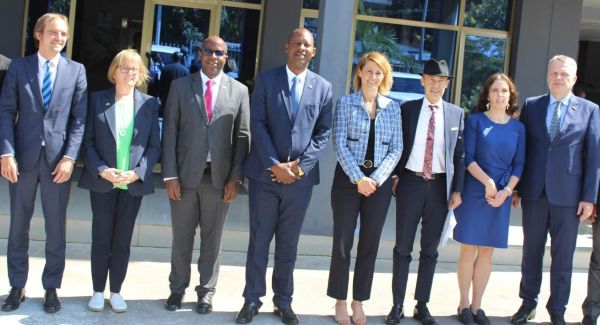On 9 June, the European Union and Zambia held a political dialogue focused on climate change and environmental issues. This meeting was co-chaired by the Honourable Mike Mposha, MP, Minister of Green Economy and Environment, and H.E. Karolina Stasiak, Ambassador of the European Union to Zambia, with attendance from the ambassadors of the EU Member States in Zambia. This dialogue is part of the EU-Zambia Partnership established on 16 April 2025 under the Samoa Agreement between the EU and ACP countries.
The EU and its Member States are committed to collaborating with Zambia on green transformation, climate adaptation, and environmental responsibility, which are crucial for sustainable development. Key areas of cooperation include the circular economy, clean energy, water management, forestry, and green finance for SMEs.
The EU has supported Zambia’s Green Growth Strategy and the enactment of the Green Economy and Climate Change Act. Discussions focused on aligning national actions with global climate goals in anticipation of COP30 in Brazil, where countries will present ambitious Nationally Determined Contributions (NDCs). The EU emphasised its continued support for Zambia’s climate commitments, including the implementation of its NDC and a robust monitoring, reporting, and verification (MRV) system, through a €4 million EU-funded project.
Zambia and the EU also discussed the EU-Zambia Forest Partnership, which promotes forest conservation and sustainable livelihoods. Recent environmental emergencies, such as the Chambishi dam collapse and toxic waste discharge into the Kafue River, underscore the need for a strong legal framework and adherence to environmental, social, and governance (ESG) standards.
The EU has called for strict enforcement of legal frameworks to prevent such incidents and ensure responsible mining practices. It is essential for those accountable for environmental impacts to take necessary actions to mitigate damage in accordance with the “polluter pays” principle defined in the Zambian Constitution, particularly regarding mining activities in or near protected areas.

